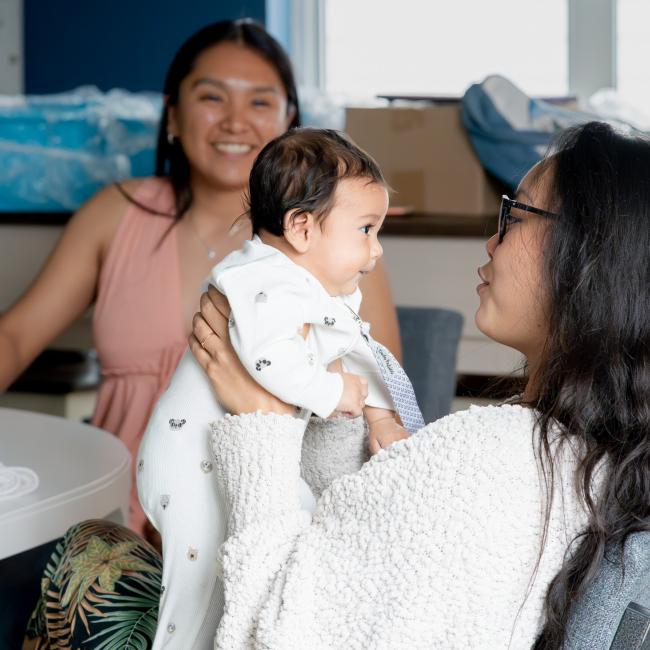Project Summary
Hummingbird Indigenous Family Services’s mission is to facilitate and support healthy Indigenous babies being born into healthy Indigenous families and communities through its birth-to-three programming and research. Through its Data Sovereignty program, the organization is bolstering its internal community-driven research capacity to document the impacts of its programs on birth justice in western Washington state. This grant is focused on developing internal capacity to lead research and evaluation efforts, enhance policy advocacy work through data, and contribute to a broader national landscape of Indigenous community-led science. The project team aims to advance Indigenous evidence-based practice and policy for the benefit of Indigenous birthing families and young children by carrying out research to decrease the gap between innovative Indigenous-led programming, data production, and dissemination efforts.
Research Questions/Aims
- How can existing program data, rigorous community engagement, and Indigenous research frameworks be used to develop a systems impact-focused evaluation plan for the BirthKeepers Indigenous Doula program and the Pilimakua Early Childhood Home Visiting program?
- What impacts do these programs have on Indigenous health and birth justice outcomes at the individual, community, and regional/policy levels?
Actionability
- Inform future early childhood programming and policymaking for Indigenous communities across the nation.
Outcomes
Health: mental health and wellbeing of birthing people and young families;
Other: job burnout and satisfaction, cultural connectedness, Indigenous doulas and home visitors’ impact on cultural relevance, birth outcomes, birthing parents’ experiences with providers within and outside of Hummingbird (i.e., doulas, home visitors, doctors, midwives, etc.), child development
Methodology
In the first phase, the project team is using a community-based formative program and evaluation design process consisting of community listening sessions, utilizing human-centered design and community-based participatory research methods, guidance from a community advisory board, and engagement with literature and experts. The goal is to develop a community- and theory-driven conceptual model to guide development of the research protocol and measures. For the second phase, the team is evaluating the community- and systems-level impacts of the program and exact research methodology will be determined during the formative evaluation phase. Data interpretation will be a community-engaged process, first consisting of the team’s initial analysis including preliminary thematic analysis of qualitative data and generation of descriptive statistical output. These data summaries will be shared with community partners which may take the form of a “Data Walk” in which data are physically presented on a wall in poster form or handed out on flyers and community member attendees can read and interact with the posters/flyers by writing on them, having discussions, and similar interactive opportunities.

Hummingbird Indigenous Family Services